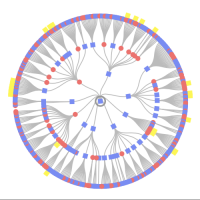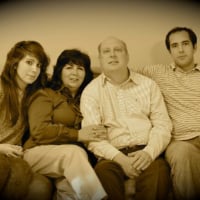How can we access memories locked away after loved ones have passed on?
I'm trying to encourage others to post memories, stories, pictures, recordings, stories etc. in familysearch, thinking these will be preserved for future generations. If these memories are locked away after a loved one is deceased, how can surviving family members access them? For my understanding, what is the initial purpose of having this feature?
Comments
-
The missing piece is this:
If someone contributes content in their private space with the intention that it be made public after their death, they can put a letter in their personal estate file (with their will but not in their will) that states their wish and their FS login ID and password.
1 -
Ok. Understood. Thank you.
0 -
where in LDS / FS policy does it state this: ?????
quoting:
If someone contributes content in their private space with the intention that it be made public after their death, they can put a letter in their personal estate file (with their will but not in their will) that states their wish and their FS login ID and password.
0 -
You may wish to read the following article, which is the latest information found about memories added by deceased users. If the memories are visible to the public, they stay that way.
When a user passes away, if FamilySearch knows about the death, the system locks the account. All Memories items that the individual contributed remain in our Family Tree database.
This is also true of tags. Others can still see these tagged items but cannot edit them.
If the user has added private memories, those memories are not made public. The system is set to keep private any memories designated by a contributor as private.
We are sorry for your loss.
3 -
the status for FS memories items - defaults to PUBLIC
it is only if we mark them as private others would not see them.
any items we submit - that are marked as public are available to others while we are alive - they CONTINUE to be publicly available even after we die - with no needed action. - yes - that is the whole point of submitting FS memories - to preserve them even after we pass.
one should use caution in marking items as "private"
see: http://yanceyfamilygenealogy.org/when_you_pass_away.htm
1 -
Most memories are always public - if they are tagged or have a somewhat unique title they can be located by searching in memories. The issue is memories tagged to living records that end up associated with a deceased individuals account. The gallery associated with a users account is not visible to others so you must either search for the memory or find it attached to a record. If the memory is tagged to a living record you cannot see and the title/description is so generic you cannot find by searching then in effect the memory is hidden. One solution to this issue is to place the memory in an album and then share the album with family members - that way all memories can be seen and can be tagged to appropriate records.
1 -
There is more in this world than LDS / FS.
0 -
responding to: dontiknowyou
well of course - but what good does it to put it into a will - if FS has no faciltiy to do what you refer to????
My question is where in FS policy or documentation does it say it is even possible to do what you allude to? (transfer the records) (maybe I mis-assumed) - just wanted to clarify - what you expected or envisioned happening post mortem.
I apologize if I mis-understood.
0 -
responding to: dontiknowyou
maybe I misunderstood what you were alluding to as post mortom actions - if you simply meant that someone should log on to their account and do something maybe that would work (depending on what action you are alluding to) . . . but it doesnt have to be in a will - - -
also that will only work for non lds accounts - as LDS accounts are closed upon death.
please just clarify a bit what you were expecting to happen with the information in the will?
0 -
I specified that information about contents of Family Tree private tree space should not be in a will. Again: not in a will.
This is all part of estate planning, and there are many self-help books on the topic. Genealogy research products are part of a person's intellectual estate. Anyone who has much of it should have a plan for its disposition before and/or after death.
Access of families to online accounts after an account owner's death alway is dicey, so consider planning ahead. Create a primary repository at home or on some other site, and upload to FT only copies.
Consider how, for example, Facebook provides for this difficult process: https://www.facebook.com/help/1568013990080948
2 -
yes - all of that is great - I agree,
Im just wanted to clarify what you thought a person would be able to do - once they accessed the account.
(for example - there is no facility in FS to transfer the records to a different account)
BUT YES - I totally agree - - people need to plan ahead.
this was one article I wrote up on the matter.
1 -
Records can be downloaded, then uploaded elsewhere. Or viewed and copied.
A feature request could be made for some sort of graceful, transparent support for the deceased person's intellectual estate, such as an assignment on records in the private space: What other account should they go to? Or, what trusted person should be given temporary access to the account to clean up unfinished projects?
1 -
memories downloaded to a computer lose their supporting data. just the file, photo etc goes.
0 -
Is making this sort of thing easier to manage not one of the purposes of the Family Group initiative?
0


